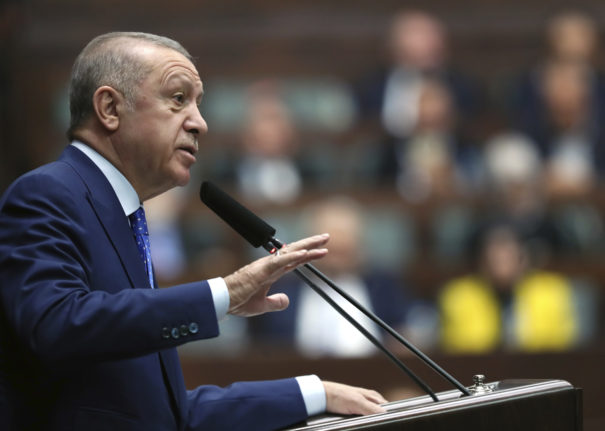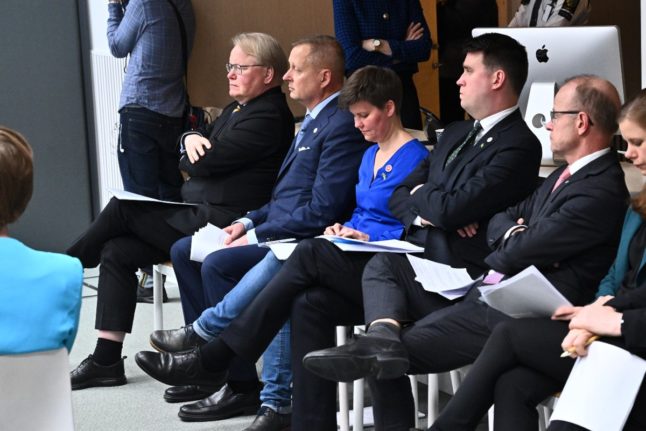“Our only expectation from Nato allies is… to first understand our sensitivity, respect and finally support it,” Erdogan told his party’s legislators in parliament.
Finland and Sweden submitted a joint application to join Nato on Wednesday May 18th as Russia’s invasion of Ukraine forces a dramatic reappraisal of security in Europe.
Erdogan accused Stockholm of providing safe haven to members of the outlawed Kurdistan Workers’ Party (PKK) designated as a terror group by Ankara and its Western allies.
“We asked them to extradite 30 terrorists but they refused to do so,” he said.
“You will not send back the terrorists to us and then ask our support for your Nato membership … We cannot say ‘yes’ to make this security organisation being lacking in security,” he added.
Sweden has also imposed embargoes on arms sales to Turkey since 2019 over Ankara’s invasion of Syria.
“We are sensitive about protecting our borders against attacks from terror organisations,” said Erdogan, calling on Nato allies to support Turkey’s “legitimate” Syria operations or at least not to stand in their way.
The Turkish leader also said he was not warm to Swedish or Finnish delegations’ request to visit Ankara for consultations.
“They want to come on Monday. They shouldn’t bother. There’s no need,” he said.



 Please whitelist us to continue reading.
Please whitelist us to continue reading.
Member comments